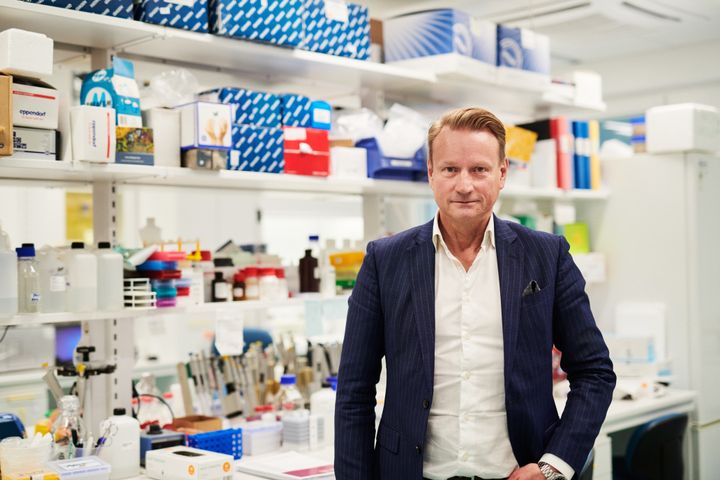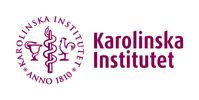New generation of corona vaccine shows promising results
Researchers at Karolinska Institutet in Sweden are developing a coronavirus vaccine designed to be less sensitive to mutations and equipped for future strains. The vaccine showed promising results in mice in a newly published study in EMBO Molecular Medicine, and the researchers now hope to be able to take it to safety studies on humans.

“This is a new generation of corona vaccine,” says Matti Sällberg, professor at the Department of Laboratory Medicine, Karolinska Institutet, and the study’s joint last author with Ali Mirazimi, adjunct professor at the same department. “The idea is that it will give broader protection that more resembles that gained after an actual infection and will be a bit more future-proof than the vaccines currently in use.”
Different types of vaccine have been highly instrumental in impeding the pandemic caused by the coronavirus SARS-CoV-2. One challenge is the virus’s mutability, which is to say its ability to change to avoid the human defence response.
Most current vaccines are based on using parts of the coronavirus’s so-called spike protein to trigger the body’s immune response to the virus. It is a good vaccine protein to use, but unfortunately it is the spike protein where frequent mutations occur, which can impact the vaccines’ effectiveness.
The researchers at Karolinska Institutet are therefore developing a vaccine containing more parts of the virus, including ones that do not mutate at the same rate as the spike protein.
The vaccine is a DNA vaccine, which means that it comprises DNA sequences which when injected into the body make the cells produce the proteins that the DNA sequences contain instructions for. In this case, it concerns DNA for parts of the spike protein from three different coronavirus variants and DNA for another two virus proteins, called M and N, where mutations are less common.
In this newly published study, the researchers show that the vaccine protects mice against serious infection from the beta variant of SARS-CoV-2, a variant that can evade the immune response, and activates immune cells (T cells) that recognise the coronavirus found in bats.
The researchers hope that the vaccine can one day be used as a booster to be given as a top-up after a basic vaccination with other vaccines.
“The next step is to test it on humans in a small safety study, what’s known as a phase I study, and we’ve submitted permit applications for this,” says Matti Sällberg.
The vaccine has been designed and tested at Karolinska Institutet in collaboration with the Karolinska University Hospital and the KTH Royal Institute of Technology in Sweden. Infection studies and toxicological studies have been conducted with the Swedish Public Health Agency and Adlego Biomedical, a company based in Solna (Sweden). Northx Biologics in Matfors (Sweden) have produced the vaccine.
The vaccine is administered with a newly developed instrument for DNA vaccination produced by the Italian company IGEA Biomedical. The project also involves researchers from Germany’s Justus Liebig University, which has studied how the innate immune response is affected by the vaccine.
The research was financed through the EU’s Horizon 2020 (Opencorona) and ERINHA programmes, by the Swedish Research Council, the Swedish Cancer Society, Vinnova, the Knut and Alice Wallenberg Foundation and CIMED, and with ALF grants from Region Stockholm and support from private donors.
Matti Sällberg and co-author Lars Frelin are founders of and shareholders in Svenska Vaccinfabriken Produktion, which owns patent applications for the vaccine.
Publication: “A universal SARS-CoV DNA vaccine inducing highly crossreactive neutralizing antibodies and T cells”, Sofia Appelberg, Gustaf Ahlén, JingyiYan, NeginNikouyan, Sofie Weber, Olivia Larsson, Urban Höglund, Soo Aleman, Friedemann Weber, Emma Perlhamre, Johanna Apro, Eva-Karin Gidlund, Ola Tuvesson, Simona Salati, Matteo Cadossi, Hanna Tegel, Sophia Hober, Lars Frelin, Ali Mirazimi och Matti Sallberg. EMBO Molecular Medicine, published online 19 August 2022, doi:10.15252/emmm.202215821.
More reading: Spotlight on Vaccine Research
Contacts
For more information, please contact:
Matti Sällberg, professor
Department of Laboratory Medicine, Karolinska Institutet, Sweden
Email: matti.sallberg@ki.se
Phone: +46 70 608 2101
Images

Karolinska Institutet (https://ki.se/en) is one of the world’s leading medical universities. Our vision is to advance knowledge about life and strive towards better health for all. Karolinska Institutet accounts for the single largest share of all academic medical research conducted in Sweden and offers the country’s broadest range of education in medicine and health sciences. The Nobel Assembly at Karolinska Institutet selects the Nobel laureates in Physiology or Medicine.
Subscribe to releases from Karolinska Institutet - English
Subscribe to all the latest releases from Karolinska Institutet - English by registering your e-mail address below. You can unsubscribe at any time.
Latest releases from Karolinska Institutet - English
New method reveals how the brain and inner ear are formed3.4.2025 20:00:00 CEST | Pressmeddelande
Researchers at Karolinska Institutet have developed a method that shows how the nervous system and sensory organs are formed in an embryo. By labelling stem cells with a genetic ‘barcode’, they have been able to follow the cells’ developmental journey and discover how the inner ear is formed in mice. The discovery, published in Science, could provide important insights for future treatment of hearing loss.
Fluoride in drinking water is associated with impaired childhood cognition7.3.2025 15:30:00 CET | Pressmeddelande
Elevated concentrations of fluoride can occur in well water, and in some countries, it is added to drinking water to counteract caries in the population. A study from Karolinska Institutet in Sweden now supports a few previous studies indicating that exposure to fluoride during the fetal stage or early childhood may impair cognition in children. The study is published in the journal Environmental Health Perspectives.
Children with ARFID face increased risk of disease17.2.2025 17:00:00 CET | Pressmeddelande
Children with avoidant restrictive food intake disorder (ARFID) have an elevated risk of developing psychiatric and physical conditions, a new study from Karolinska Institutet published in JAMA Pediatrics reports. The study highlights the importance of early identification to improve care of these children.
Preterm babies receive insufficient pain management27.1.2025 15:29:17 CET | Pressmeddelande
A large proportion of babies born very early need intensive care, which can be painful. But the healthcare system fails to provide pain relief to the full extent. This is shown by the largest survey to date of pain in neonatal care, now published in the journal Pain.
New study paves way for immunotherapies tailored for childhood cancers20.1.2025 17:00:00 CET | Pressmeddelande
Researchers at Karolinska Institutet and the Astrid Lindgren Children’s Hospital in Sweden have determined how children’s immune systems react to different kinds of cancer depending on their age. The study, which is published in the journal Cell, reveals significant differences between the immune response of children and adults, and has the potential to lead to new tailored treatments for children with cancer.
In our pressroom you can read all our latest releases, find our press contacts, images, documents and other relevant information about us.
Visit our pressroom